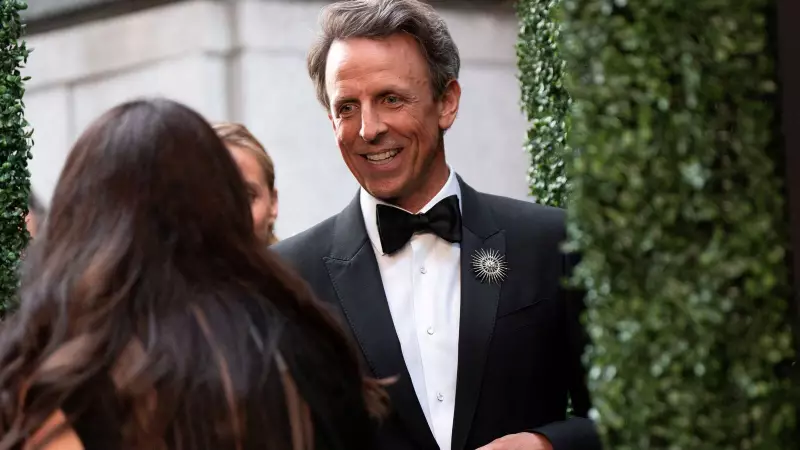
Former President Donald Trump has unleashed a furious verbal assault on late-night host Seth Meyers, branding him a "deranged lunatic" in what marks the latest escalation of tensions between the ex-commander-in-chief and the entertainment industry.
The Explosive Social Media Outburst
Taking to his Truth Social platform, Trump didn't hold back in his criticism of the "Late Night" host. The former president's post contained multiple inflammatory allegations, including the remarkable claim that being "100% anti-Trump" constitutes illegal activity.
Trump's rant specifically targeted Meyers' comedy segment, accusing the host of dedicating excessive airtime to criticizing him while allegedly ignoring what Trump characterized as "the failing Biden administration."
Context of the Ongoing Feud
This isn't the first time Trump has clashed with late-night television personalities. However, the intensity of this particular attack underscores the deepening rift between the former president and media figures as the 2024 presidential election landscape takes shape.
Meyers, who has been consistently critical of Trump throughout his presidency and beyond, represents what Trump frequently describes as "hostile media" that he claims unfairly targets conservative voices.
Legal Implications and Political Reactions
The most controversial aspect of Trump's statement involves his assertion that political opposition could be considered "illegal." Legal experts have been quick to question this characterization, noting that political criticism falls squarely within protected speech under the First Amendment.
Political analysts suggest this outburst reflects Trump's broader strategy of confronting media critics head-on while rallying his support base against what he portrays as institutional bias.
Broader Impact on Political Discourse
This incident highlights the increasingly contentious relationship between political figures and entertainment media. As the lines between news, entertainment, and political commentary continue to blur, such public confrontations are becoming more frequent and more vitriolic.
The exchange also raises questions about how former presidents engage with media critics and the boundaries of political discourse in the digital age, where social media platforms provide direct communication channels bypassing traditional media filters.





